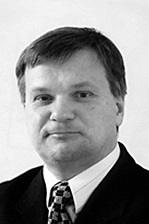Commentaries
Commentaries of the representatives of political parties represented in the Riigikogu on the Memorandum of Cooperation reflect almost the whole mosaic of the principles of cooperation between the public authorities, political parties and the third sector.
Aimar Altosaar (MP, Pro Patria Union) sees the cooperation memorandum as a public relations project that is aimed at drawing the public’s attention to the possibility to actually participate in the process of shaping the society and influencing governance of the state not only during elections but continuously.
Tiit Toomsalu (MP, Estonian United People’s Party) stresses two possibilities offered by the cooperation memorandum. First, NGOs can now do legislative lobby work through organisationally clear and legal channels, and second, pressure groups can influence the process of law-making in its initial stage.
Paul-Eerik Rummo (MP, Estonian Reform Party) sees the signed memorandum and forming of the cooperation forum between umbrella organisations of political parties and third sector as an encouragement and incentive to the so far relatively weak third sector in Estonia. He believes that designing the concept of the desired civil society and its discussion in the Riigikogu will help to open new perspectives for cooperation between the state and citizens’ initiative.
Mai Treial (MP, Estonian Pensioners and Families Party) stresses that non-profit associations help to balance the state’s social economic development, the growth of income disparities as well as cultural and regional disparities, and will thus alleviate tensions in the social-political life in Estonia.
Andres Varik (MP, Estonian People’s Union) takes first a look back at the ideas of the creation of the rule of law and civil society confirmed at the time of regaining of Estonia’s independence. He concludes, while looking at today’s Estonia, that the more civil societies are formed and the more active and professional they are the better are the chances for cooperation with politicians.
Küllo Arjakas (MP, Estonian Centre Party) highlights the fact that the signed cooperation memorandum is quite a unique historic event even in the international context. On the one hand the signatories were all major political parties in Estonia, and on the other hand, it consolidates all major Estonian NGO associations. Thus, there is a basis for a more serious cooperation for the building of civil society in Estonia, while at the same time this sphere of activity is further regulated by the Estonian legislation and international agreements.
Leivi Sher (Estonian United People’s Party, adviser to the faction) points out that the cooperation forum connected with the memorandum is presently the only institution where non-partisan citizen associations have an equal partnership standing with political parties. He expresses hope that in future it will help to avoid situations where for example, while drawing up a government-sponsored programme for the integration of society, several major Russian-speaking groups to be concerned were not included in the drafting process.
Mart Meri (MP, Moderates) says that the state functions effectively when it can sort out from the special interests of the different groups of the society the interests that associate to the public interests of the society, in order to subsequently implement them step by step through cooperation. Discussion of the different interests of the civil society and the respective decision-making takes place in the parliament elected by the people and in the government implementing those interests. In his opinion, cooperation between the third sector, Parliament and the Government has been ineffective so far. One of the reasons is also the lack of the used information. The cooperation memorandum creates a necessary procedure and an information channel for this purpose.







